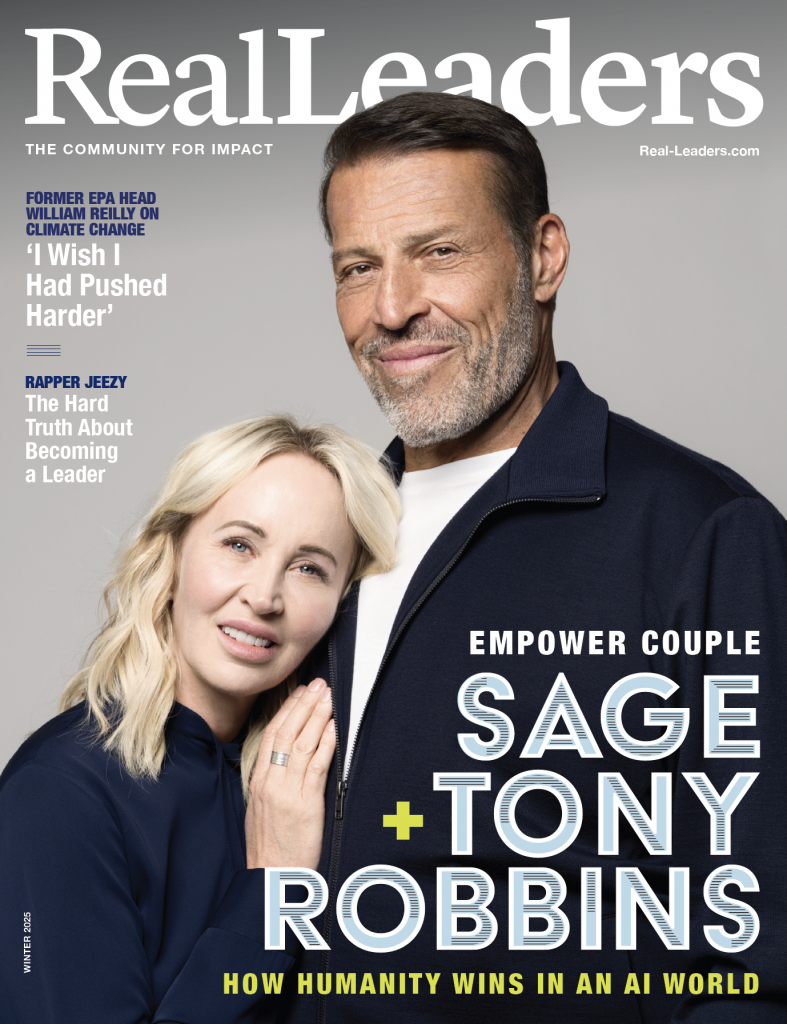Based on current standards of business leadership, David Novak is a superstar. He is the CEO of Yum! Brands. The company that brings you the great foods of Taco Bell, KFC and Pizza Hut. They have nearly 40,000 locations worldwide and open a new one every 14 hours. David is a star because he really knows how to make money for shareholders and he knows how to build a team of high-performing leaders to operate a complicated global business.
For shareholders, he’s turned Yum! into a money machine. Yum! restaurants have some of the highest operating margins and lowest costs in the business. He had the vision and the guts to move into countries like China and India full force before the rest of his competitors got wind that every human being likes salty, greasy food. So now Yum! operates in 130 countries selling pizza, mashed potatoes, tacos and rivers of soda to billions of poor people.
The good news for Yum! shareholders is that this is highly profitable. Yum! stock has returned 16.5% compounded annually since 1997. That’s pretty yummy. His blow-away financial results makes Novak an executive rock star. Fortune magazine (August 12, 2013) just published a gushing piece about how great a leader Novak is. And he is. I’ve only met David Novak once.
I was assisting with a leadership training, which he attended. He is a warm and sincere person who genuinely cares about his managers and the quality of the culture of the company he leads. That is the substance of the Fortune article… that David Novak is one hell of a great leader. All I can say is what a waste.
What a waste of talent, brainpower, creativity, and financial resources.
What a waste of time and effort of tens of thousands of people who wake up every morning to make the world just a little bit worse. If that sounds harsh, it’s meant to.
In a world of 7 billion people, can we enthusiastically condone a business operating in a moral vacuum in which employees get up every morning and work their guts out to make and sell stuff that is actually designed to hurt people?
And as Charles Kinney writes in Bloomberg BusinessWeek, there’s no disputing that 1,000 calorie lunch made up of popcorn chicken, honey mustard dipping sauce, potato wedges and a 20 ounce Pepsi isn’t harmful. As he points out, obesity and heart disease is exploding in high-growth emerging markets where American fast food companies have seduced millions into habitually eating junk. 45% of Chinese men are now overweight. In every single new market that American fast food has penetrated, obesity has gone up, along with diabetes.
Is it really an overstatement to point out the emerging vicious cycle where global food chains make billions through ruining the health of people while spending on diabetes medicine to treat them skyrockets?
Maybe I’m missing something. Yum! Brands congratulates itself by saying it puts the health and nutritional needs of the customers first. After all, they discontinued their kids meal at Taco Bell. Wall Street analysts commented on what a clever PR move this was since kids meals accounted for less than one half of one percent of Taco Bell sales. Does that sound cynical to you? Of course, if you asked an executive of Yum! Brands how they sleep at night, they would say very well.
They would say if their meals are consumed only occasionally or in the proper amounts, that fried chicken, mashed potatoes and gravy can be part of a healthy diet. Hmmmm… but that’s not the business strategy of fast food companies. Marketing people try to identify heavy, repeat customers because theses are the customers most valued by retain food chains because In over 35 years of working with executives, I’ve never been in a business meeting where the discussion centered on how to get people to use less of their product. Never.
Perhaps my concerns are nonsense. I frequently listen to economists and others who claim that the role of the capitalist is not to make decisions for consumers, but rather to provide them with what they want. So the theory is if people want to eat themselves to death or lose all their money in Las Vegas or smoke cigarettes that’s their business.
But is preying on human weakness a legitimate business model?
It certainly isn’t a moral one. The first law of morality is to do all that you can to prevent avoidable suffering. So how can we celebrate super competent leadership of big companies whose business success relies on people making bad choices… creating suffering. Is that really the best we can do? Really? There are so many lousy leaders that it is very frustrating for me to see someone who is truly gifted like David Novak spend his life building a great company that sells shit. Haven’t we lost the whole point?
If each one of us is invested in our talent, energy, creativity and capital in products and services that help people live healthier, happier lives the world would be different.
Making money is a skill. It’s not a purpose. If at the end of our lives we look in the mirror and say I spent my life learning how to make money rather than doing something that actually created a better future that’s just a waste. So what do you think? Can our world thrive with business leaders hiding behind the wall of amoral choices?
Do we really think our best future will come because we’ve created a special activity know as business that celebrates any legal way of making money even if it causes people to suffer?
Do you ever wonder…”what in the hell are we doing?”





